The Barnes & Noble Review
Karen Hesse's Newbery Award-winning skills are put to great use in Witness, a poetic tale about friendship, fanaticism, and the deadly undercurrents of racial prejudice. The story takes place in a small Vermont town in the year 1924, revealing the devastating impact of the Ku Klux Klan on this pastoral, insular community. At the heart of the tale are two motherless girls who come to the attention of the newly formed Klan: 12-year-old Leanora Sutter, who is black, and 6-year-old Esther Hirsch, who is Jewish.
Hesse tells her story, which is based on real events, through the eyes of 11 different characters. Each point of view is expressed in poetic form, but with a stark clarity of difference that makes the voices unique and identifiable. There is a fire-and-brimstone preacher whose sermons reveal him as a zealot and whose actions brand him as a hypocrite. There is a middle-aged farm woman named Sara who takes Esther under her wing despite the warnings of her neighbors, trying to help the child understand why the Klan has marked her and her widowed father as targets for their hatred. Esther's only other friend is Leanora, who is about to learn some harsh lessons on tolerance and hatred herself at the hands of the Klan. And linking them all together is 18-year-old Merlin Van Tornhout, a young man struggling to fit in with the adult world and determine for himself the difference between right and wrong. The remaining characters who circle the periphery of this core group reflect the various mind-sets and biases that were common during this era of fear and persecution, even in a setting as bucolic as the Vermont countryside.
Hesse weaves real historic events into her tale, such as the murder trial of the infamous kidnappers Leopold and Loeb, giving the work a definite period flavor. Using prose that is both sparse and powerful, she builds the tension with a slow crescendo of inevitability that ends in violence, but also offers up an unforgettable lesson on the true power of friendship and acceptance. (Beth Amos)
Karen Hesse's Newbery Award-winning skills are put to great use in Witness, a poetic tale about friendship, fanaticism, and the deadly undercurrents of racial prejudice. The story takes place in a small Vermont town in the year 1924, revealing the devastating impact of the Ku Klux Klan on this pastoral, insular community. At the heart of the tale are two motherless girls who come to the attention of the newly formed Klan: 12-year-old Leanora Sutter, who is black, and 6-year-old Esther Hirsch, who is Jewish.
Hesse tells her story, which is based on real events, through the eyes of 11 different characters. Each point of view is expressed in poetic form, but with a stark clarity of difference that makes the voices unique and identifiable. There is a fire-and-brimstone preacher whose sermons reveal him as a zealot and whose actions brand him as a hypocrite. There is a middle-aged farm woman named Sara who takes Esther under her wing despite the warnings of her neighbors, trying to help the child understand why the Klan has marked her and her widowed father as targets for their hatred. Esther's only other friend is Leanora, who is about to learn some harsh lessons on tolerance and hatred herself at the hands of the Klan. And linking them all together is 18-year-old Merlin Van Tornhout, a young man struggling to fit in with the adult world and determine for himself the difference between right and wrong. The remaining characters who circle the periphery of this core group reflect the various mind-sets and biases that were common during this era of fear and persecution, even in a setting as bucolic as the Vermont countryside.
Hesse weaves real historic events into her tale, such as the murder trial of the infamous kidnappers Leopold and Loeb, giving the work a definite period flavor. Using prose that is both sparse and powerful, she builds the tension with a slow crescendo of inevitability that ends in violence, but also offers up an unforgettable lesson on the true power of friendship and acceptance. (Beth Amos)
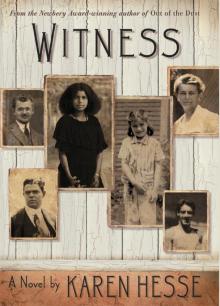
 Frank Einstein and the Space-Time Zipper
Frank Einstein and the Space-Time Zipper A Bundle of Dinosaurs: Three Dinosaur Stories
A Bundle of Dinosaurs: Three Dinosaur Stories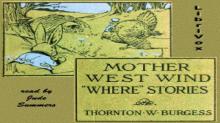 Mother West Wind Where Stories
Mother West Wind Where Stories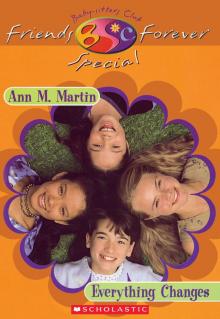 Everything Changes
Everything Changes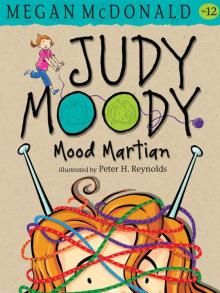 Judy Moody, Mood Martian
Judy Moody, Mood Martian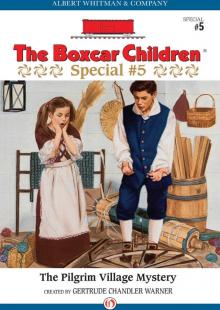 The Pilgrim Village Mystery
The Pilgrim Village Mystery Mars Burning (The Saving Mars Series-)
Mars Burning (The Saving Mars Series-)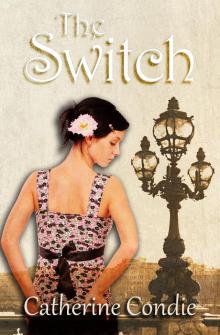 The Switch
The Switch